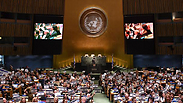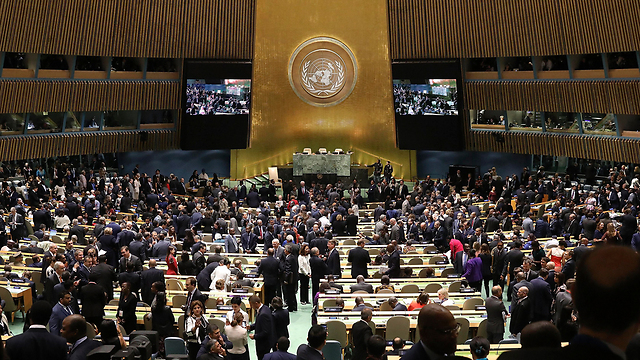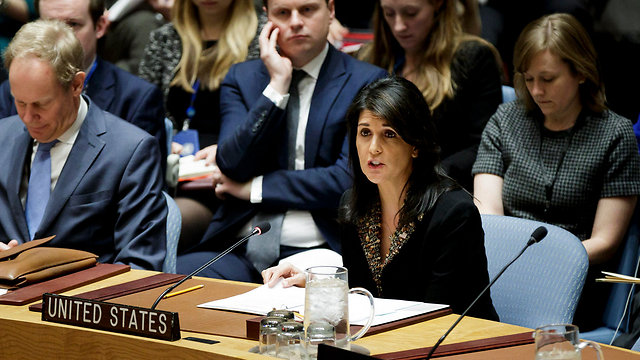Palestinian UN envoy Riyad Mansour said the General Assembly would vote on a draft resolution calling for Trump's declaration to be withdrawn, which was vetoed by the United States in the 15-member UN Security Council on Monday.
The remaining 14 Security Council members voted in favor of the Egyptian-drafted resolution, which did not specifically mention the United States or Trump but which expressed "deep regret at recent decisions concerning the status of Jerusalem."
Mansour said on Monday he hoped there would be "overwhelming support" in the General Assembly for the resolution. Such a vote is non-binding, but carries political weight.
US Ambassador Nikki Haley, in a letter to dozens of UN states on Tuesday seen by Reuters, warned that the United States would remember those who voted for the resolution criticizing the US decision.
"The president will be watching this vote carefully and has requested I report back on those countries who voted against us. We will take note of each and every vote on this issue," Haley wrote.
She echoed that call in a Twitter post: "The US will be taking names."
Under a 1950 resolution, an emergency special session can be called for the General Assembly to consider a matter "with a view to making appropriate recommendations to members for collective measures" if the Security Council fails to act.
Only 10 such sessions have been convened, and the last time the General Assembly met in such a session was in 2009 on eastern Jerusalem and territories considered Palestinian by the UN. Thursday's meeting will be a resumption of that session.
Trump reversed decades of US policy this month when he recognized Jerusalem as Israel's capital, generating outrage from Palestinians and the Arab world and concern among Washington's Western allies.
Trump also plans to move the US embassy to Jerusalem from Tel Aviv. The draft UN resolution calls on all countries to refrain from establishing diplomatic missions in Jerusalem.
Haley said on Monday that the resolution was vetoed in the Security Council in defense of US sovereignty and the US role in the Middle East peace process. She criticized it as an insult to Washington and an embarrassment to council members.



















